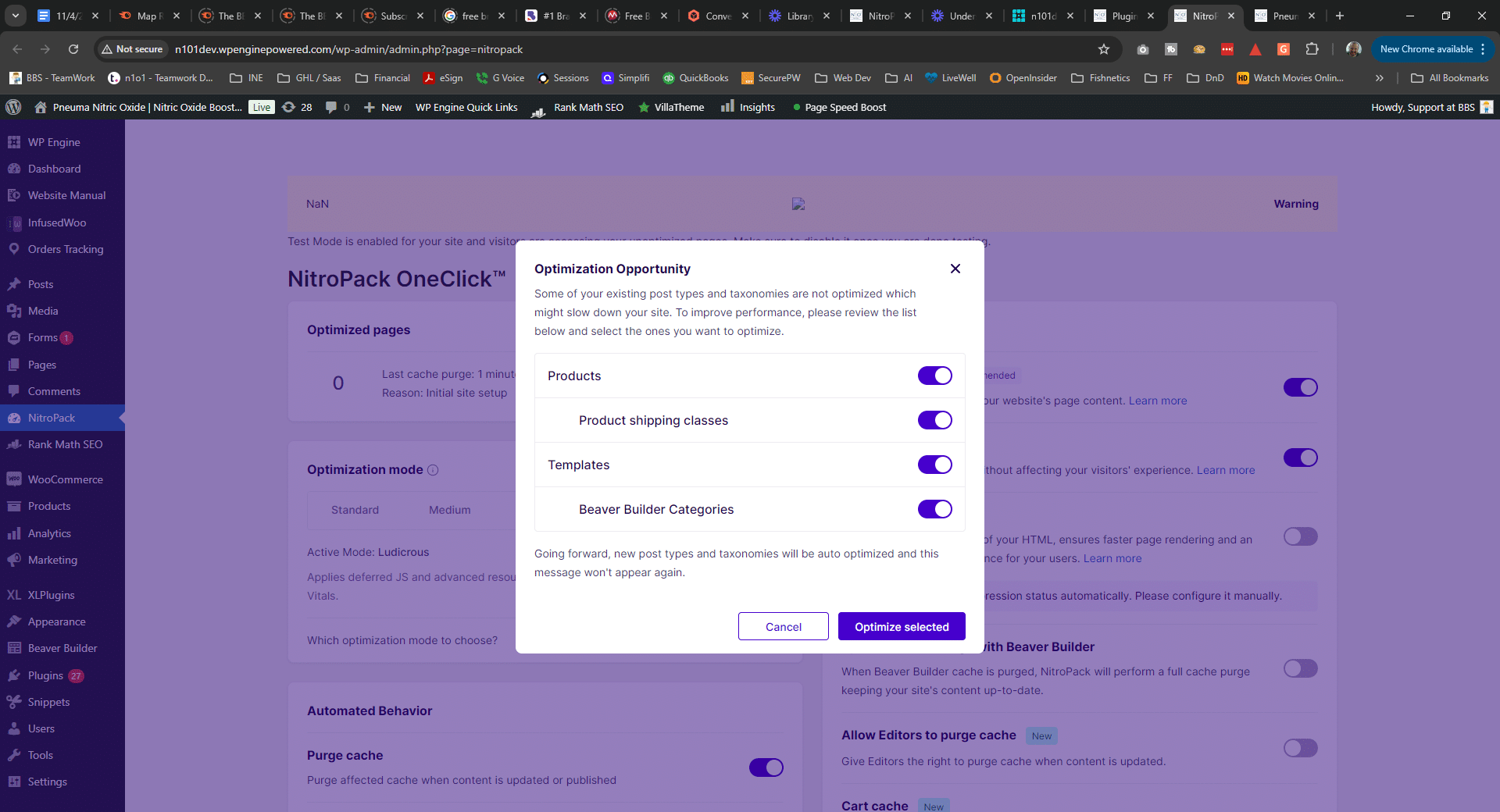Let’s face it: Trying to rank in search results in 2022 needs to use a completely different strategy than getting your domain to rank 10, even 5 years ago. You can’t “trick” Google’s algorithm anymore. It’s learned how to see right through keyword stuffing and automated link building. If you want to rank in organic search results in 2022, you need to focus on answering the user’s question. It’s not enough just to know what keywords to include in your articles anymore. You need to know why they’re using it and provide them the information they are looking for. Research the competition and do better. Focus on your local SEO, listen to feedback, and constantly be thinking of ways to improve. If you have any questions about your SEO strategy or want us to handle it for you, reach out to us at Prebuilt Sites or The BBS Agency. We’d love to help you out!
Gone are the days when image-rich web pages with zero text, keyword stuffing, automated link building, link exchanges, web directory listings, syndicated articles, and producing a high volume of blog posts (with low quality) helped rank your brand’s website.
Let’s face it: those search engine optimization (SEO) tactics that got your enterprise’s domain to rank in 2007 are about as outdated as Blockbuster, Blackberry, Circuit City, and Radio Shack.
Why care about Google?
It’s no surprise Google commands the lion’s share of search traffic worldwide at just over 91 percent of global searches, according to the digital marketing agency Reliabilesoft. The Microsoft Bing search engine share is between 2.83 percent and 12.31 percent of global searches (depending on the country)—so most marketers focus on ranking for Google versus other search engines.
Google uses a proprietary and (somewhat) secret algorithm to establish what website shows up when a searcher types in a specific query.
In the past, Google updates had funny names like Penguin, Panda, BERT, and even Fred. These days, most Google updates fall under one umbrella: Google core algorithm updates. According to MarketMuse, Google updates its core search algorithm on a nearly daily basis to provide “search results offering the best and most relevant content for every query.”
Why care about SEO?
Understanding how search engines work—and how to rank content for them—is a critical part of the success of your website and business. Here are a few reasons to care about SEO:
- Web content optimized for search engines can bring in highly qualified visitors to your brand’s website, which improves your content’s reach.
- Web content optimized for search engines can grow into a valuable “evergreen” asset. Meaning it has lasting effects after you take the time to create it. “As your website gains traction, results tend to grow and then snowball, attracting more and more fresh visitors over time,” explains ClearTech contributor Scott D’Ambra.
- When optimizing your website for Google, you’re single-handedly offering a valuable resource for those seeking information related to your industry, prompting users to enter the sales cycle without paying for lead generation.
- Quality content has a compounding effect; it will keep visitors coming back and even referring others down the line.
Actionable steps to organically rank content for 2022 and beyond
At first glance, understanding Google’s core algorithm updates can be overwhelming for marketers and web administrators. But here’s the good news: ranking for Google is possible by following these steps:
1. Focus on user intent
Heard of search intent? It’s Google’s way of understanding the intent behind a user’s search. “In 2022, the SERP [search engine results page] will pay more attention to the search intent,” co-founder of RevenueGeeks Adam Wood says.
The pandemic impacted worldwide human behavior, including search behavior. Because consumers were home-bound, they turned to Google for product information instead of on-premise salespeople.
“Because of this shift in customer search intent, SERPs returned more comparative and informational articles instead of product pages,” Wood adds. He believes brands who understand this trend will succeed in dominating organic search. “The problem will be in knowing the users’ needs and meeting them.”
So, how do you do this? Wood predicts educational material will be a significant growth driver in organic search this year. Marketers should research what themes to cover, how to structure content, and what content type to use for a particular query.
2. Produce site-wide quality content
“The days of using cheap writers for a penny a word to crank out a 500-word article that was low-quality but had the keywords stuffed in enough to get it to rank are gone,” says Jeff Campbell, owner of multiple websites and six-figure-earning blogger.
He believes it’s crucial to pick the proper search terms to target and analyze the competition that is currently ranking for those terms. “Look at what’s ranking in terms of length, quality, site speed, and whether it’s a well-known website,” he suggests. “For a new site with a relatively low domain authority, it’s best not to go after phrases where the top search results are well-known websites.”
Campbell also suggests making your article 20 percent longer than the top search results as long as that added length is comprehensive and not fluff. “Go deeper into the topic, include original research or statistics, and Google will reward you with better rankings.”
Rinse and repeat the process to ensure that you’re producing the same quality of content site-wide instead of having a few quality content assets. This strategy will help boost your search position for a range of terms.
3. Consider localizing content
Local SEO is increasingly important, so optimizing your site content for maps and local search is critical. “[It] holds a powerful position in driving traffic to your website. Therefore, ensuring continuous optimization is essential,” says Gosia Hytry, head of content at spacelift.io. The following tactics can help you rank for local search terms:
- Solicit and respond to reviews. Authentic customer reviews are essential because the star rating is the most crucial factor in determining a business’s quality.
- Set up and optimize your Google Business profile. This includes optimizing metadata and ensuring your contact information is 100 percent correct everywhere on the web. Link to your contact information or “about us” page on both your Google Maps and Google Business Profile.
- Visibly display your business name, address, and phone number. “Your business name, address, and phone number are critical to your local SEO strategy,” explains Jylian Russell, chief marketing advisor at Botpress. These local indicators should be prominently displayed on every page of your website, like on your website’s footer. “Ensure that these identifiers are consistent everywhere you place them so that search engine crawlers can connect all of the pages where they appear,” she adds.
- Create location-specific content and product pages. Russell also says it’s advisable to create location-based pages for each area you service. “On each of these pages, you should add optimized header tags that include the search terms locals use to look for the services you’re offering.” These tags will help your readers and crawlers understand the flow of the page and what to expect. “[But] be sure to also include landmarks, city, and street names in the content of these pages to optimize them for local SEO further,” she adds.
4. Pay attention to quality rater guidelines
While Google primarily uses search bots (artificial intelligence) to scan and rank the millions of web pages on the Internet, it has recently implemented human review. These people are called “search quality raters.” They are actual individuals who look at Google search results and determine if the websites truly solve users’ problems or questions. Google then uses those insights to better understand if its core algorithm is working as intended.
However, no additional optimization measures are needed for quality rater guidelines. Quality raters are there as a secondary measure to ensure Google’s algorithm serves up the best results for its users.
Parting thoughts
Google Search Central Blog periodically offers search updates to follow. It’s vital to keep an eye on Google’s core algorithm and update your content accordingly. Remember: organic search is just one piece of the overall puzzle when it comes to brand content.
Originally published on The Content Strategist.





